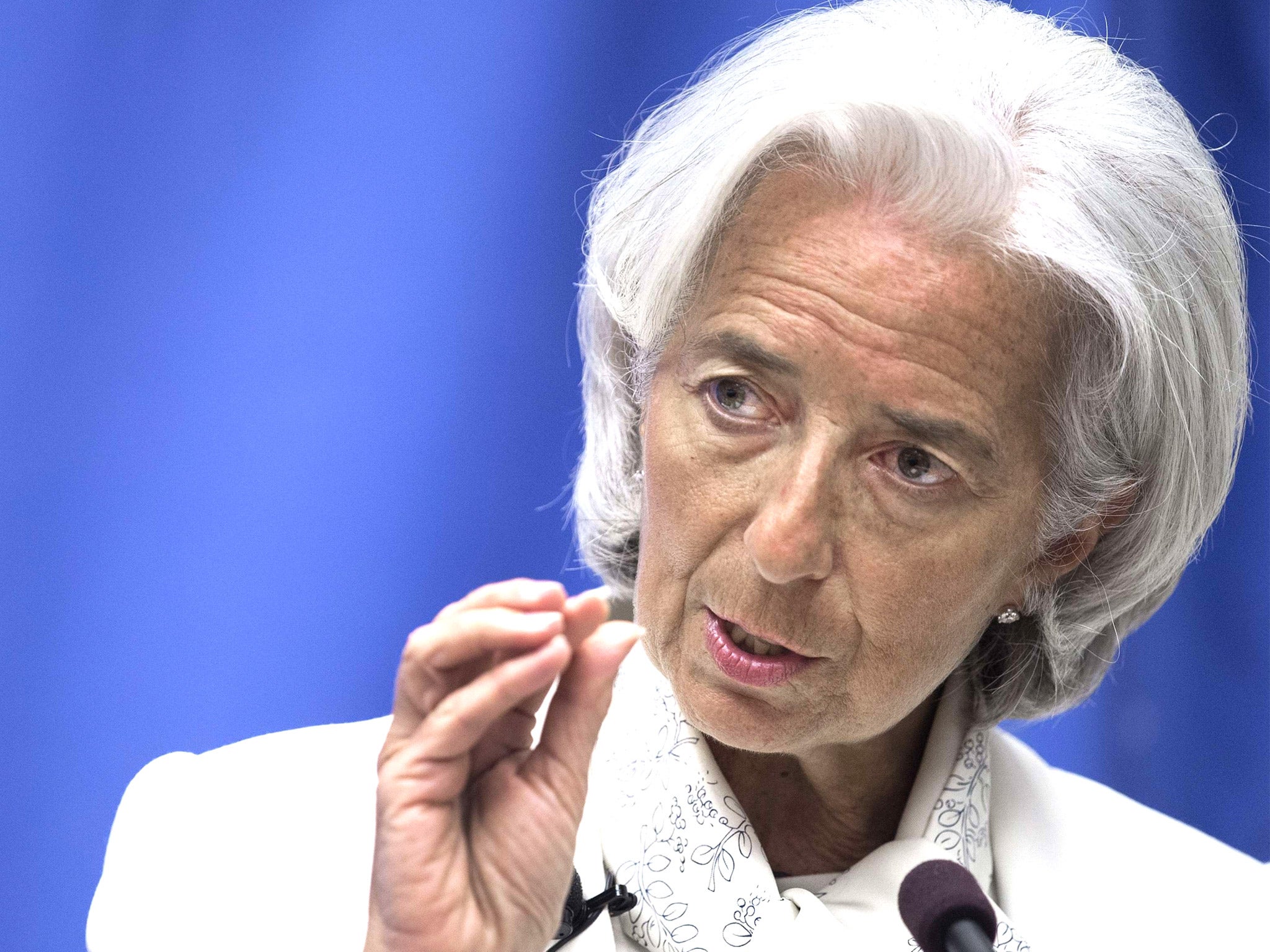IMF's latest World Economic Outlook warns of threats to the global economy
Forecasts trimmed as chief economist admits recovery is 'weak and uneven'

Your support helps us to tell the story
From reproductive rights to climate change to Big Tech, The Independent is on the ground when the story is developing. Whether it's investigating the financials of Elon Musk's pro-Trump PAC or producing our latest documentary, 'The A Word', which shines a light on the American women fighting for reproductive rights, we know how important it is to parse out the facts from the messaging.
At such a critical moment in US history, we need reporters on the ground. Your donation allows us to keep sending journalists to speak to both sides of the story.
The Independent is trusted by Americans across the entire political spectrum. And unlike many other quality news outlets, we choose not to lock Americans out of our reporting and analysis with paywalls. We believe quality journalism should be available to everyone, paid for by those who can afford it.
Your support makes all the difference.A gathering storm of political turmoil, a stalling eurozone and complacency in financial markets is posing a new threat to the global economy, the International Monetary Fund warned yesterday.
The IMF’s latest World Economic Outlook had good news for the UK – forecast to be the world’s fastest-growing, advanced economy this year at 3.2 per cent – but slashed estimates for Europe’s biggest countries as well as Japan.
The IMF trimmed global forecasts by 0.1 per cent to 3.3 per cent this year and its chief economist, Olivier Blanchard, admitted the recovery was “weak and uneven”.
He warned that a sustained period of low interest rates in the UK and elsewhere had driven a search for returns, meaning that “financial markets may be too complacent about the future”.
War in the Ukraine and upheaval in the Middle East has not hit energy prices so far – oil prices have fallen by 20 per cent since their recent June high – but “the risk that they do so in future is there”, Mr Blanchard added.
In the eurozone, meanwhile, the economist flagged up the risk of a descent into outright deflation, which would “clearly be the major issue confronting the world economy”.
The European Central Bank’s president, Mario Draghi, has slashed its main interest rate, cut bank-deposit rates into negative territory and pumped billions of euros into financial markets.
But the IMF still puts the chances of a new eurozone recession at around one in three, and pressed the case for a major programme of infrastructure investment across the region to spur growth, as advanced economies also wrestle against the longer-term problems of ageing populations and low productivity.
Growth in the eurozone will be just 0.8 per cent this year, down from 1.1 per cent mooted in July. Next year, the single-currency zone is expected to manage an advance of just 1.3 per cent.
Japan has been hit by a rise in VAT, prompting the IMF to slash forecasts for the world’s third-biggest economy this year and next – to 0.9 and 0.8 per cent respectively.
Despite the UK’s brighter growth prospects, the body also sounded a warning on lingering risks from housing and mortgage markets.
Mr Blanchard – who previously accused the Chancellor of “playing with fire” on austerity policies – said the “US and the UK in particular are leaving the financial crisis behind”.
But the outlook also warned: “The UK… faces financial stability risks arising from housing and mortgage markets.”
In June, the Bank of England introduced limits on high loan-to-income home loans mortgages to prevent borrowers over-extending themselves, while tighter mortgage lending criteria are slowing runaway prices.
The Bank’s latest credit-conditions survey found a “significant” fall in the availability of home loans in the past three months after eight-successive quarters of growth in the market.
Join our commenting forum
Join thought-provoking conversations, follow other Independent readers and see their replies
Comments